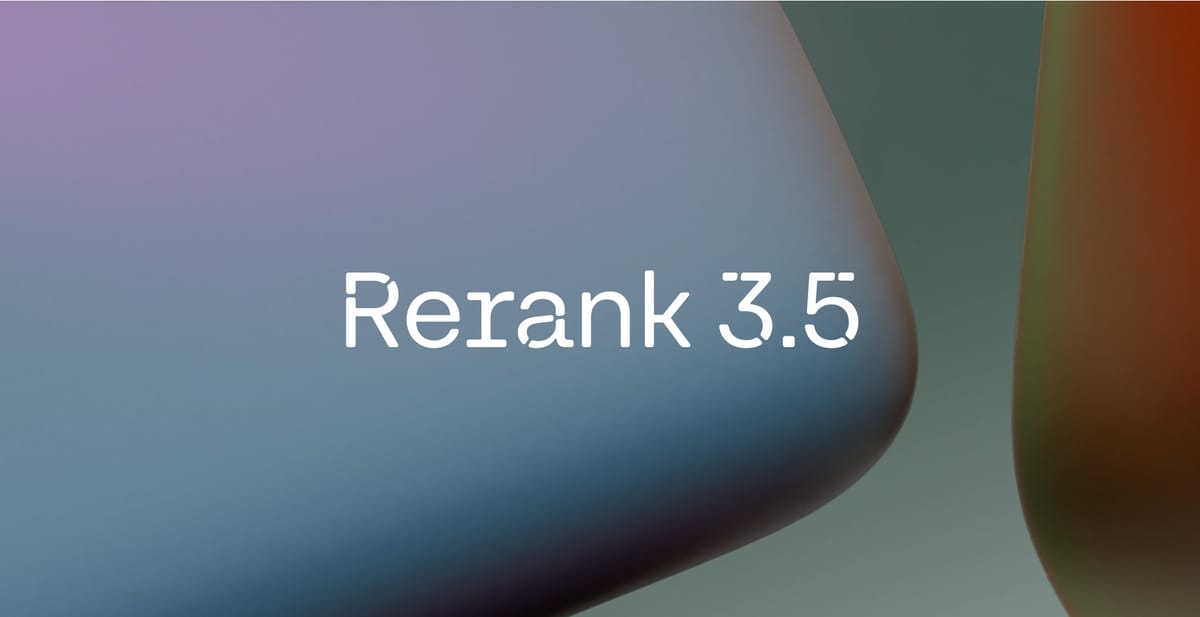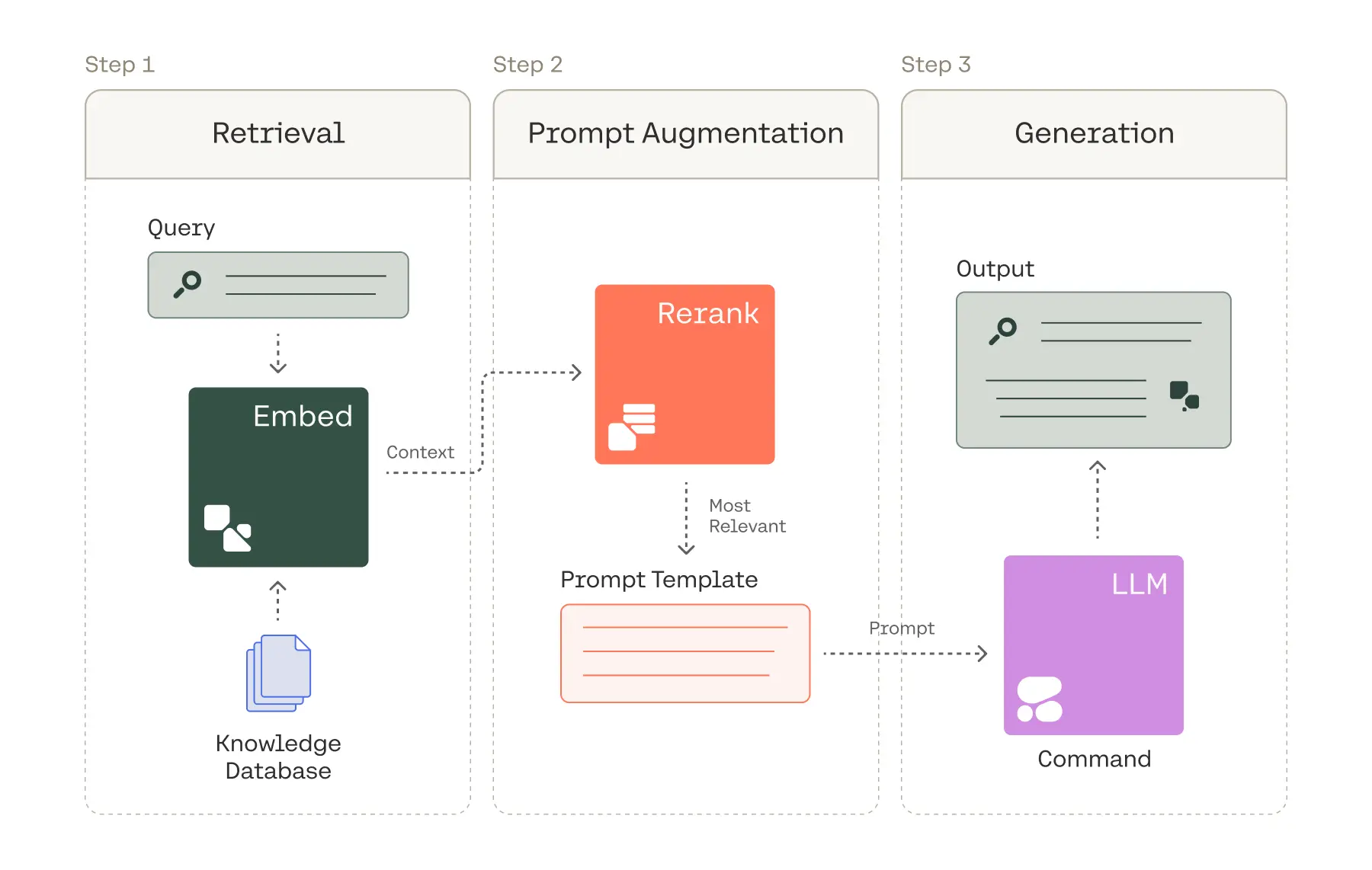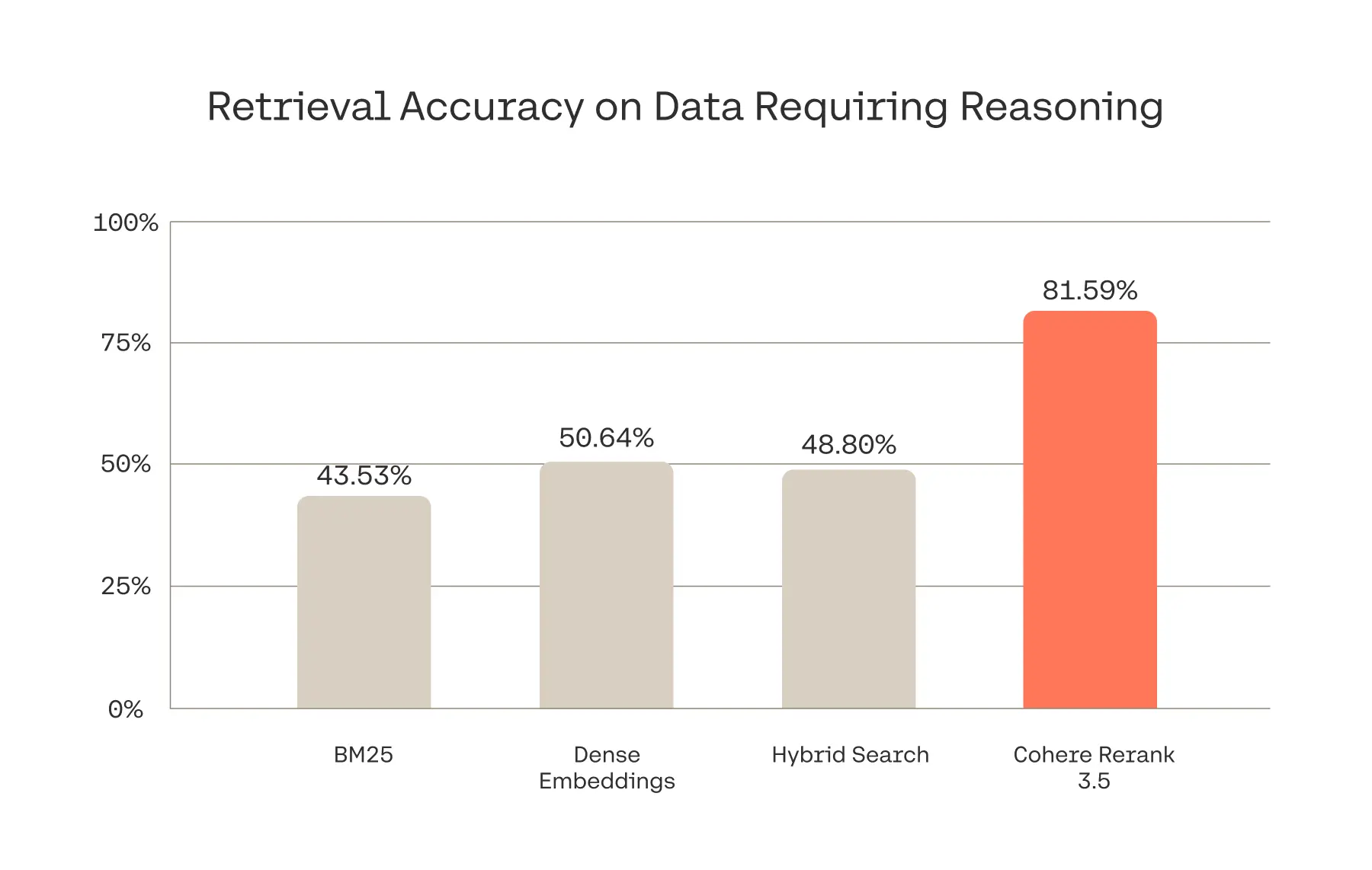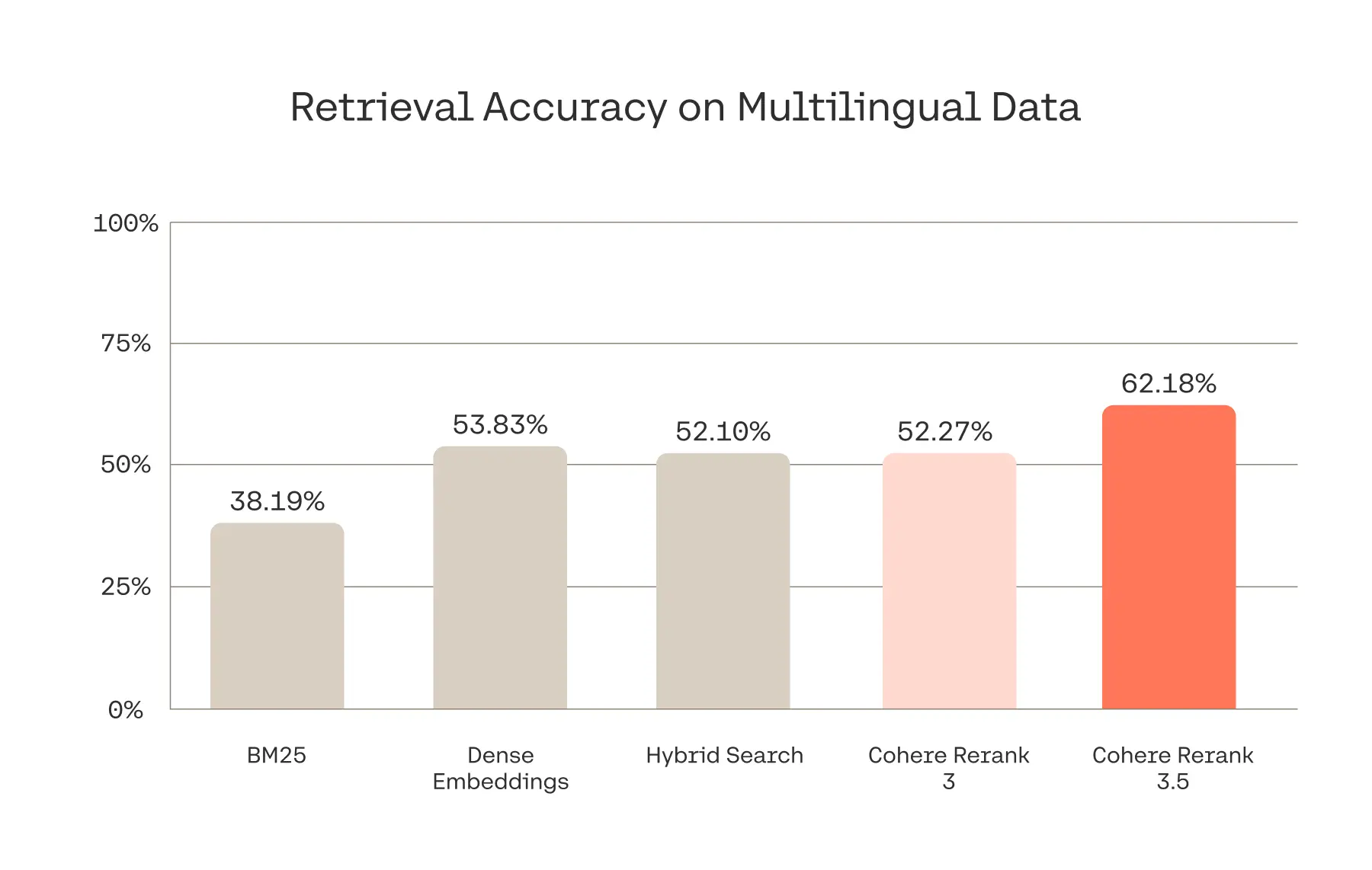
Cohere's latest AI search foundation model, Rerank 3.5, has improved reasoning capabilities, supports 100+ languages, and is designed to fit seamlessly into any existing enterprise search systems.
What is Rerank?: At its core, Rerank represents a sophisticated approach to an everyday problem: finding exactly what you're looking for in a sea of information. Think of it as a highly intelligent sorting system. While traditional search engines might match keywords, Rerank actually understands the meaning behind a search query and ranks results based on their true relevance to the question.
The technology works as a complement to existing search systems, acting like a smart filter that re-orders initial search results for maximum relevance. It's particularly valuable in RAG (Retrieval Augmented Generation) systems, where AI models need accurate information to generate reliable responses. By ensuring only the most relevant documents reach the AI model, Rerank 3.5 helps companies build more reliable and cost-effective AI systems.
What makes this approach unique is its method called "cross-encoding" - essentially, the model examines both the search query and each potential result together, understanding their relationship in context rather than just matching keywords. For businesses, this means employees can ask natural questions and find relevant information, even when their search terms don't exactly match the documents they need.

Why It Matters: Businesses today are overwhelmed with unstructured data, from emails to reports and even code. Traditional search often falls short, especially when faced with multi-layered questions or multilingual needs. Cohere aims to fix this, offering improved search accuracy that helps organizations surface the most relevant information in real time.
The model's impact is already evident in real-world applications. "Cohere is a key part of what makes Notion AI work," says Simon Last, Notion's CTO and co-founder. "Their reranker gives us both the speed and quality we need, and it's been essential for getting our AI Connectors out the door quickly."
For financial institutions and specialized industries, the numbers tell an interesting story. Internal testing by Cohere shows the model outperforming traditional search methods by significant margins - 23.4% better than hybrid search and 30.8% better than standard keyword approaches. These improvements could be particularly valuable for firms dealing with complex regulatory documents or technical reports.

The model's enhanced ability to understand context and intent addresses a long-standing pain point in enterprise search. Rather than just matching keywords, it can grasp nuanced queries and constraints that often trip up conventional search systems. This means employees can phrase questions naturally and still find what they're looking for.
Global organizations might find the model's expanded language capabilities especially useful. It can now handle searches across more than 100 languages, with particular strength in major business languages like Arabic, Chinese, French, and Japanese. Cross-language search accuracy has improved by 26.4% over its predecessor - potentially valuable for multinational teams sharing information across borders.

AWS's Data & AI GTM VP Rahul Pathak sees broad applications: "Whether in finance, hospitality, retail, e-commerce or beyond, Cohere's Rerank 3.5 model enables organizations to improve how they surface and utilize critical information, delivering better responses while reducing both latency and costs."
The practical side looks promising too. The model can work with existing search systems through minimal code changes and is available through Cohere's platform and Amazon's cloud services, with more platforms planned. For organizations still experimenting with AI implementations, this could offer a relatively low-risk way to improve their information retrieval systems.
The Bottom Line: Cohere’s Rerank 3.5 is built for precision and speed, seamlessly integrating into existing systems while boosting search relevance across languages and industries. For businesses overwhelmed by data and complex user queries, it offers a way forward that’s smarter and more effective than traditional search methods.

